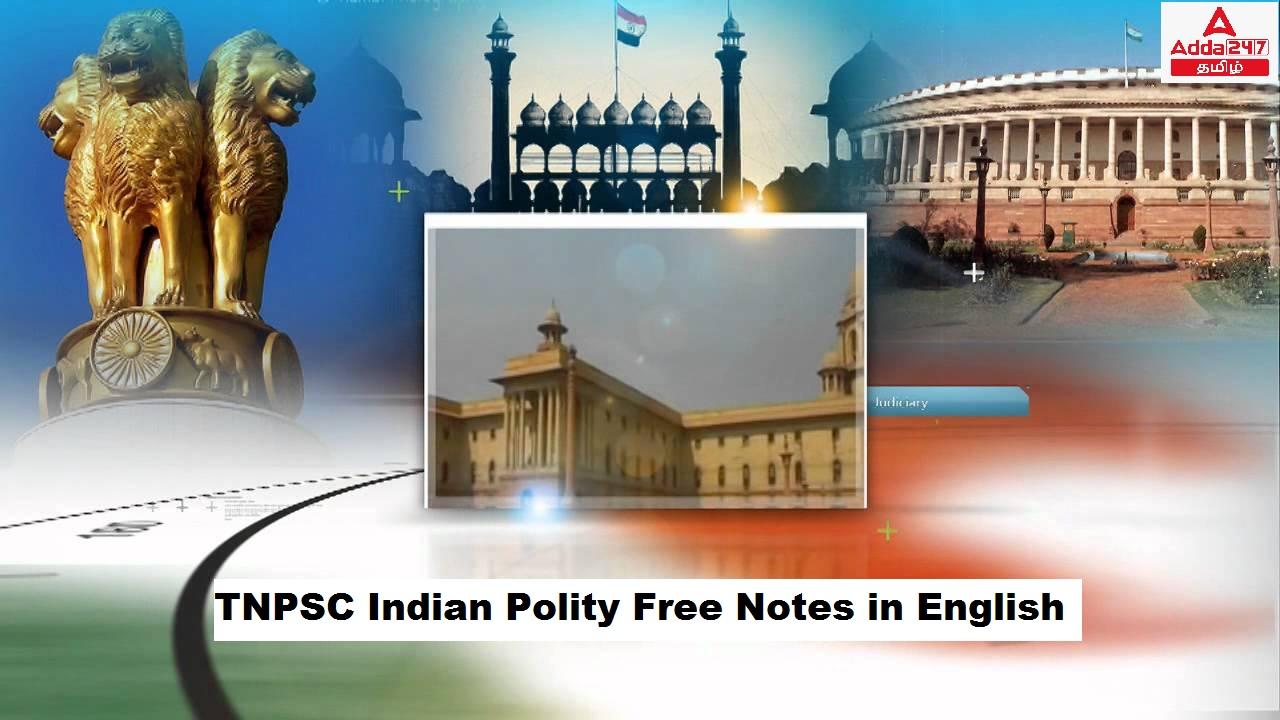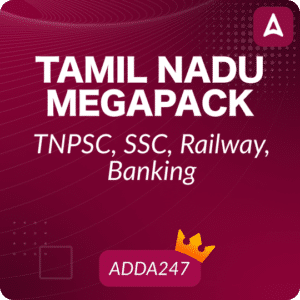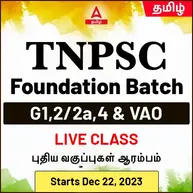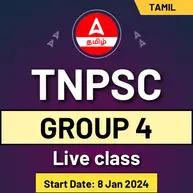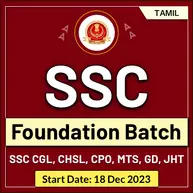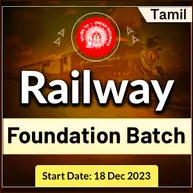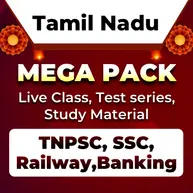இந்தக் கட்டுரையில், TNPSC குரூப் 1, குரூப் 2, குரூப் 2A, குரூப் 4 மாநிலப் போட்டித் தேர்வுகளான TNUSRB, TRB, TET, TNEB போன்றவற்றுக்கான முறைகள் இலவசக் குறிப்புகளைப் பெறுவீர்கள்.தேர்வுக்கு தயாராவோர் இங்குள்ள பாடக்குறிப்புகளை படித்து பயன்பெற வாழ்த்துகிறோம்.
Elections
Election Commission
The Election Commission is a permanent and an independent body established by the
Constitution of India directly to ensure free and fair elections in the country.
Article 324 of the Constitution provides that the powers of superintendence,
direction and control of elections to parliament, state legislatures, the office of the
president of India and the office of the Vice-President of India shall be vested in the
election commission.
Thus, the Election Commission is an all-India body in the sense that it is common to
both the Central government and the State governments.
It must be noted here that the election commission is not concerned with the
elections to panchayats and municipalities in the states. For this, the Constitution of
India provides for a separate State Election Commission.
Appointment
Art 324 provides for a Chief Election Commissioner to be appointed by the President. He
can also appoint any number of Election Commissioners. Originally the commission had
only a Chief Election Commissioner. It currently consists of Chief Election Commissioner
and two Election Commissioners.
For the first time, two additional Commissioners were appointed on 16 October 1989, but
they had a very short tenure till 1 January 1990.
Later, on 1 October 1993 two additional Election Commissioners were appointed. The
concept of multi-member Commission has been in operation since then, with decision-
making power by majority vote.
The decisions are arrived at by either consensus or majority in a multi-member Election
Commission.
There is a provision to appoint Regional Commissioners before each general election to
Lok Sabha and State Assembly and before the general election and thereafter before
each biennial election to the Legislative Council.
The President appoints them in consultation with the Election Commission.
Removal
The Chief Election Commissioner can be removed only on the same grounds and in the
same manner as a judge of the Supreme Court.
Other Election Commissioners can be removed only by the President on the
recommendation of the Chief Election Commissioner.
The functions of the Election Commission
The Election Commission will carry out all the work related to the elections.
I. The Election Commission shall have oversight and control over the elections of
Parliament, state legislatures, President and Vice President.
II. Prepares the voter list and publishes the list of eligible voters.
III. Determines the constituencies across the country by the Act of Parliament.
IV. Publishes election-related news.
V. Receives the nomination papers of the candidates and publishes the list of eligible
candidates.
VI. It holds six types of elections: The President, Vice President, Lok Sabha, Rajya Sabha,
Legislative Assembly and Legislative Council.
VII. Advising the President on the question of disqualification of Members of Parliament
or the Governor on the disqualification of Members of the State Legislature.
VIII. Appointment of Election Officers to inquire into election arrangements or
election-related disputes.
IX. Resolving disputes over the distribution of election symbols to political parties
during elections.
X. Allocating rotation basis day and time to the election campaign on television and
radio for various political parties.
XI. Appointment of the officer required to conduct the election.
XII. Regulating the procedures to be followed by candidates and parties during elections.
XIII. Keeping the voter list ready with no errors and taking care of other election-
related items.
XIV. National Party (or) grants State Party status to political parties.
The functions of the Election Commission are administrative and judicial. The Election
Commission decides the disputes of different parties.
Electoral Reforms
Committees related to Electoral Reforms:
The various committees are appointed to examine the electoral systems:
1. Tarkunde Committee was appointed in 1974 by Jaya Prakash Narayan. This committee
submitted its report in 1975.
2. Dinesh Goswami Committee – 1990
3. Vohra Committee – 1993
(on the Nexus between Crime and Politics)
4. Indrajit Gupta Committee – 1998
(An eight-member committee headed by Indrajit Gupta was set up in 1998 to look into
government funding for the elections. This committee submitted its report in 1991)
5. Law Commission of India’s 170th Report on Reform of the Electoral Laws (1999)
6. National Commission to Review the Working of the Constitution (2000-2002). It was
headed by M.N. Venkatachaliah.
7. Election Commission of India Report on Proposed Electoral Reforms (2004).
8. Second Administrative Reforms Commission of India (2007). It was headed by Veerappa
Moily.
9. Tankha Committee was appointed in 2010 to look into the whole gamut of the election
laws and electoral reforms.
Representation of People’s Act 1951
Voter Qualification:
Only an elector can be a representative. If a person is not qualified to vote, he cannot
represent the people in parliament (both Lok Sabha and Rajya Sabha).
In case of Lok Sabha, if the seat is reserved for SC, a non-SC voter cannot be elected to
that seat; if the seat is reserved for ST, a non-ST voter cannot be elected to that seat.
However, in the case of autonomous districts of Assam, Sikkim, ST seats for
Lakshadweep, the elector should be enrolled as a voter in the same constituency.
The same criteria are followed in Legislative Assembly of state, barring that the elector
should be an eligible voter in the same state.
Disqualification
If a person is convicted under a punishable offence related to promoting enmity, bribery,
undue influence or personation at an election, rape, cruelty towards a woman, creating
or promoting enmity, hatred or ill-will between classes, promoting religious acrimony,
practice of untouchability, import and export of prohibited goods, any other unlawful
activities, FEMA, laws related to Narcotics, terrorism acts, offences related to religious
places and religious practices, offences related to insulting the National Insignia,
Constitution of India, offence related to practice of Sati and so on… will be disqualified.
The other grounds for disqualification are as follows:
If found guilty of corrupt practices.
Disqualified for a contract entered into with government- related matters.
If fails to lodge expense accounts of elections.
Electoral Reforms
Based on the recommendations made by the following committees and commissions,
various reforms have been introduced from time to time in our electoral system:
Tarkunde Committee, 1974
Dinesh Goswami Committee, 1990
Vohra Committee, 1993
Indrajit Gupta Committee, 1998
Law Commission of India Report, 1999
Venkatachaliah National Commission, 2002
Election Commission of India Report, 2004
Veerappa Moily Commission, 2007
Tanka Committee, 2010
The voting age was lowered from 21 to 18 through the 61st Amendment Act of 1988.
Officers and staff engaged in preparation, revision and correction of electoral rolls for
elections are to be on deputation to the Election Commission.
Increase of the number of proposers to 10% of the electors of the constituency or 10
electors, whichever is less.
In 1989, a provision was made to facilitate the use of electronic voting machines in
elections.
In 1989, a provision was made for adjournment of the poll in case of booth capturing.
Listing the name of candidates as candidates of recognised political parties, candidates
of registered-unrecognized political parties and other (independent) candidates.
Prohibition on the sale of liquor within a polling area during the period of 48 hours
ending with the hour fixed for the conclusion of poll.
On the death of a contesting candidate, the party concerned would be given an option
to propose another candidate within 7 days.
The registered voters are entitled to a paid holiday on the polling day.
Prohibition of arms.
In 1998, a provision was made whereby the employees of local authorities, nationalised
banks, universities, LIC, government undertakings and other government-aided
institutions can be requisitioned for deployment on election day.
In 1999, a provision was made for voting by certain classes of persons through the
postal ballot.
In 2003, the facility to opt for voting through proxy was provided to the service voters
belonging to the armed forces and members belonging to a force to which provisions of
the Army Act apply.
In 2003, the Election Commission issued an order for the declaration of criminal
antecedents, assets, etc.
In 2003, Rajya Sabha elections were reformed by removing the domicile of the
contesting candidate and further introduction of open ballot system was introduced.
In 2003, an exemption of travelling expenditure from being included in the election
expenses of the candidate was made.
Free supply of electoral rolls by the Government.
In 2009, restrictions were imposed on conducting exit polls and publishing the results of
exit polls.
In 2009, a provision was made for the disqualification of a person found guilty of corrupt
practices, which provided for a three-month time limit within which the specified
authority will have to submit the case of the person found to be guilty.
All officials have to be included in corrupt practice.
Increase in security deposit.
Appointment of appellate authorities within the district.
Voting rights to citizens of India living abroad were provided in 2010.
Ceiling on election expenditure was increased in 2011.
Anti-Defection Law
The 52 nd Amendment Act of 1985 provided for the disqualification of the members of
Parliament and the State legislatures on the ground of defection from one political party
to another.
For this purpose, it added the Tenth Schedule to the Constitution. This Act is often
referred to as the “Anti-defection law”.
Later, the 91 st Amendment Act of 2003 made one change in the provision, i.e.
disqualification on the grounds of defection not to apply in case of a split.
Provisions of the Act
A. Disqualification
A member of a house belonging to any political party becomes disqualified if he
voluntarily gives up his membership or if he votes or abstains from voting contrary to
any direction issued by his political party without obtaining prior permission of the
party.
An independent member of the house becomes disqualified to remain a member of the
house if he joins any political party after such election.
A nominated member of the house gets disqualified if he joins any political party after
the expiry of six months from the date on which he takes his seat in the house.
B. Exceptions
Disqualifications on the ground of defection do not apply, if a member goes out of his
party as a result of a merger of the party with another party.
If a member, after being elected as the Presiding Officer of the House, voluntarily gives
up the membership of his party or rejoins after he ceases to hold that office.
C. Deciding Authority
Any question regarding disqualification arising out of defection is to be decided by the Presiding
Officer of the House.
D. Rulemaking power:
The Presiding Officer of a House is empowered to make rules to give effect to the
provisions of the Tenth Schedule.
All such rules must be placed before the House for 30 days.
The Presiding Officer of the House may approve or disapprove of them.
Further, he may direct that any willful contravention by any member of such rules may
be dealt with in the same manner as a breach of privilege of the House.
Election Process
At the national level, the head of Government, the Prime Minister, is elected by
members of the Lok Sabha, the lower house of the Parliament in India.
In a representative democracy like ours, elections are extremely important. Voting in
elections are the best way to make your ‘voice’ heard.
Voter Verified Paper Audit Trail (VVPAT) is the way forward to enhance the credibility
and transparency of the election process. This system was first introduced in the 2014
General Election.
Introduction of the NOTA Option
If the people in a democratic country are not willing to elect any candidate, they can
vote for the option called NOTA (None of the above).
Rule 49-O in the Conduct of Elections Rules, 1961, of India describes this procedure.
NOTA was first introduced in the General Elections held in 2014.
India is the 14 th country in the world to introduce NOTA.
**************************************************************************
| Adda247 TamilNadu Home page | Click here |
| Official Website=Adda247 | Click here |

